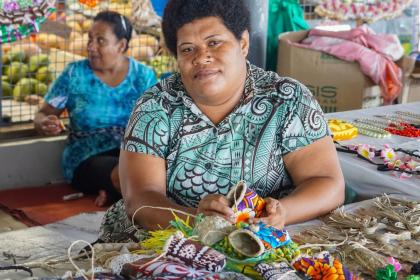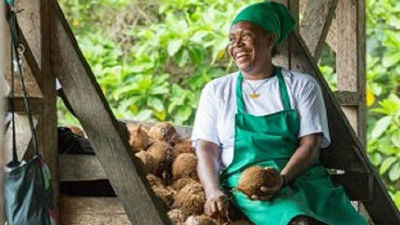The economy of the target countries are highly dependent on international trade but suffer from competitive disadvantages (e.g. high trade costs and lack of price competitiveness) at the same time.
This requires them to make their main exports (e.g. coconut, sugar, cocoa and fish) attractive to certain niche markets including "sustainability" markets that demand products and services that are proven to be "sustainable" economically, socially and environmentally.
This is in line with the aspiration of the target countries to achieve greener and more inclusive economic growth, as demonstrated by each country's national sustainable development strategies.
At this stage, however, the Melanesian Spearhead Group (MSG) members do not effectively capture this international demand which can present export growth and upgrading opportunities.
In this context, each of the target countries wishes to establish policy frameworks for green export promotion for enhancing economic growth in a manner that is inclusive and positive to environmental sustainability.
The need is particularly critical to two countries - Vanuatu and Solomon Islands - as they prepare for the graduation from the least developed countries (LDCs) status.
Objective:
To increase the capacity of four Small island developing states (SIDS) that are the members of the Melanesian Spearhead Group (MSG) to identify and strengthen synergistic linkages between green trade promotion and their sustainable development in a regionally collaborative manner.
All four countries indicate the importance of green economic growth and trade promotion in their national sustainable development strategies. However, they have not yet defined policy frameworks that would enable synergistical interactions between green export promotion and socioeconomic and environmental sustainability.
Activities:
Identifying green trade promotion strategies via selecting effective strategies regarding the voluntary sustainability standards (VSS) and mapping out synergetic linkages between: (1) Green trade promotion and (2) Sustainable development policy.
The project will greatly benefit from the inter-agency collaboration among the member agencies of the United Nations Forum on Sustainability Standards (UNFSS) which are the FAO, ITC, UNEP and UNIDO.
Resources:
The non-tariff measures data (NTMs) collected during the project for Fiji, Papua New Guinea, Solomon Islands and Vanuatu have been presented at the national workshops and are freely available on the UNCTAD TRAINS NTM database.





